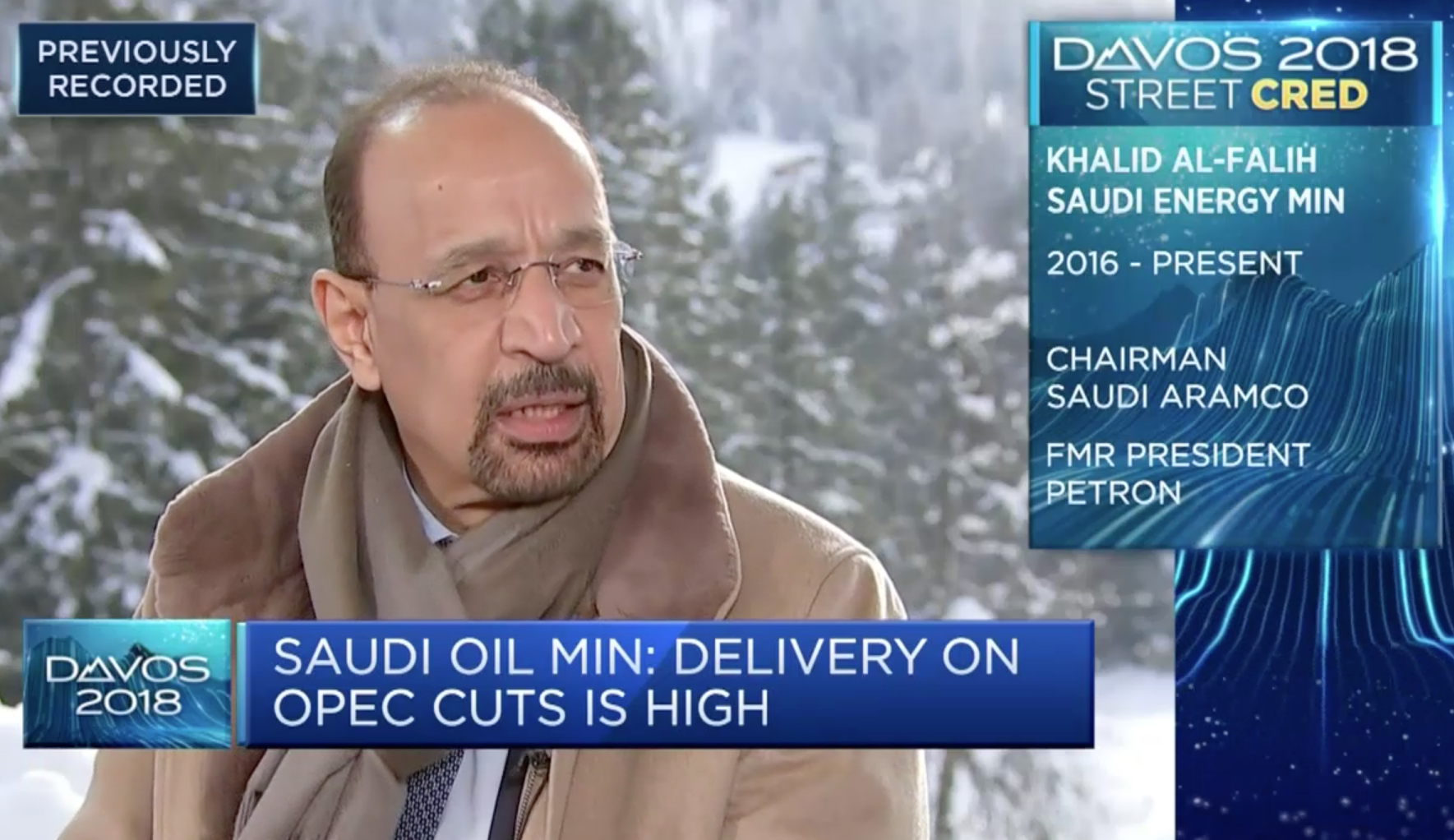Saudi government leaders arrived to Davos, Switzerland for the annual World Economic Forum to meet with other world leaders and discuss key foreign policy and energy challenges facing the Kingdom.
The 48th Annual Meeting in Davos will host 3,000 participants across all stakeholder groups including public & private sectors, civil society, academia, media, and arts & culture.
The Saudi delegation is led by Ibrahim Al-Assaf, who was recently detained but subsequently released in Saudi Arabia’s crackdown on corruption. The former finance minister and a board member of national oil company Saudi Aramco returned to work as Minister of State and advisor to the King having been cleared of any wrongdoing. Al-Assaf is a veteran of the Davos meetings having led the Saudi delegation in previous years.
The delegation was greeted by above-average snowfall totals in the tiny Swiss ski town this year. The snow has reportedly put a stop to a planned protest of the WEF by Switzerland’s Democratic and Green parties. Local authorities have reportedly put into place curfews with the highest risk of avalanche since 1999.
Al-Assaf is joined by H.E. Khalid Al-Falih, Saudi Arabia’s minister of energy, industry, and mineral resources, who said that the Kingdom was urging other global oil producers to extend their cooperation beyond 2018.
“I think there is an acceptance that we need to extend this framework of OPEC and non-OPEC cooperation, in one way or another, beyond the current agreement,” he told CNBC.
Former Saudi Ambassador to the United States and head of Saudi intelligence Prince Turki Al-Faisal is also in attendance. Prince Turki, an eloquent advocate for Saudi foreign policy, defended Saudi regional policies and placed the blame on instability on Iran.
“It is not Saudi Arabia that is sending troops to other countries like Iran is doing in Syria for example, and Iraq and even in Yemen. It is not Saudi Arabia that is instigating sectarian violence in any country, it is not Saudi Arabia that is recruiting militias from Afghanistan and Pakistan and wherever else to fight in Syria and Iraq and so on. So I don’t see how people can accuse Saudi Arabia of overreaching,” Prince Turki told CNBC.
[Screengrab via CNBC.com]









